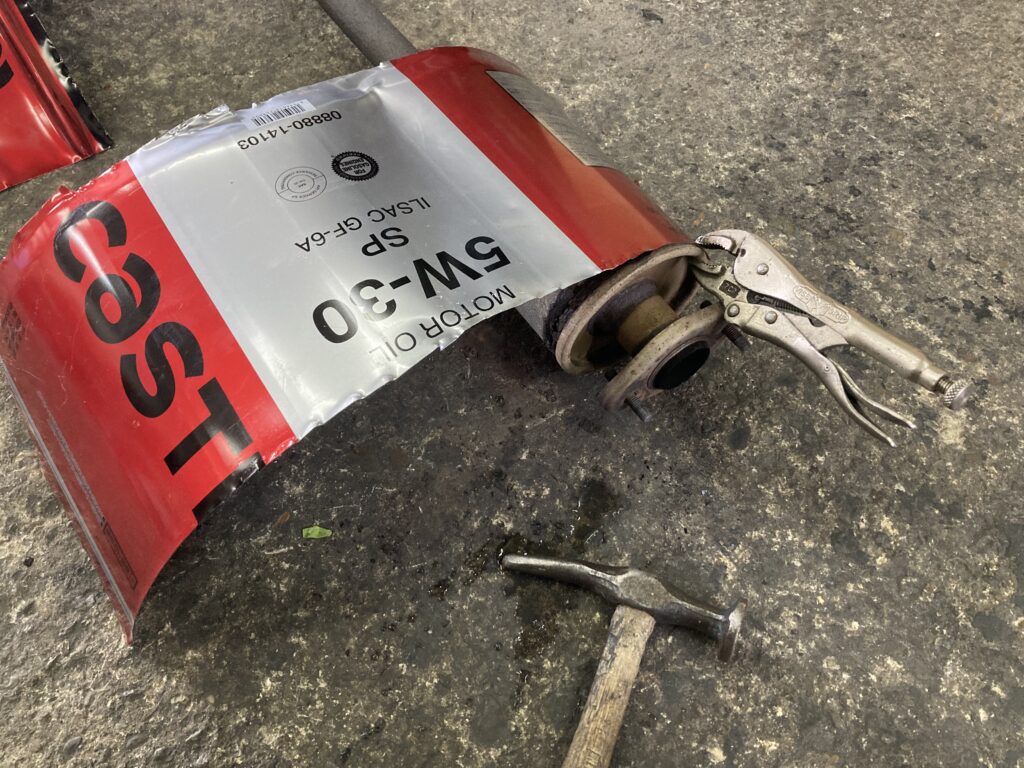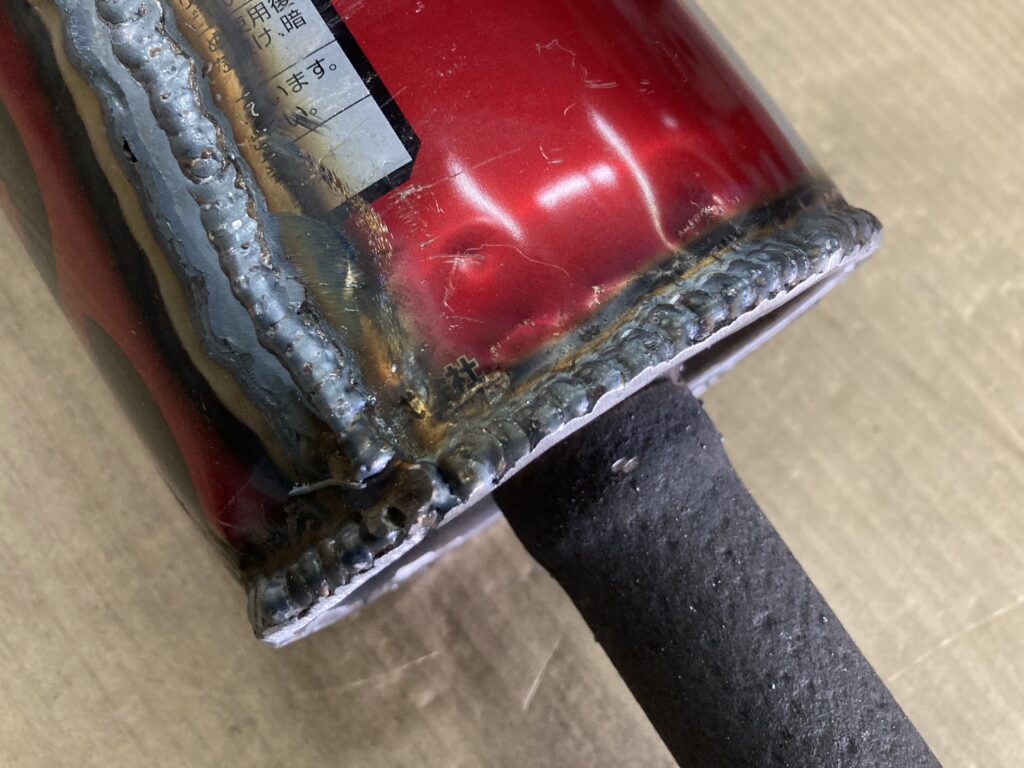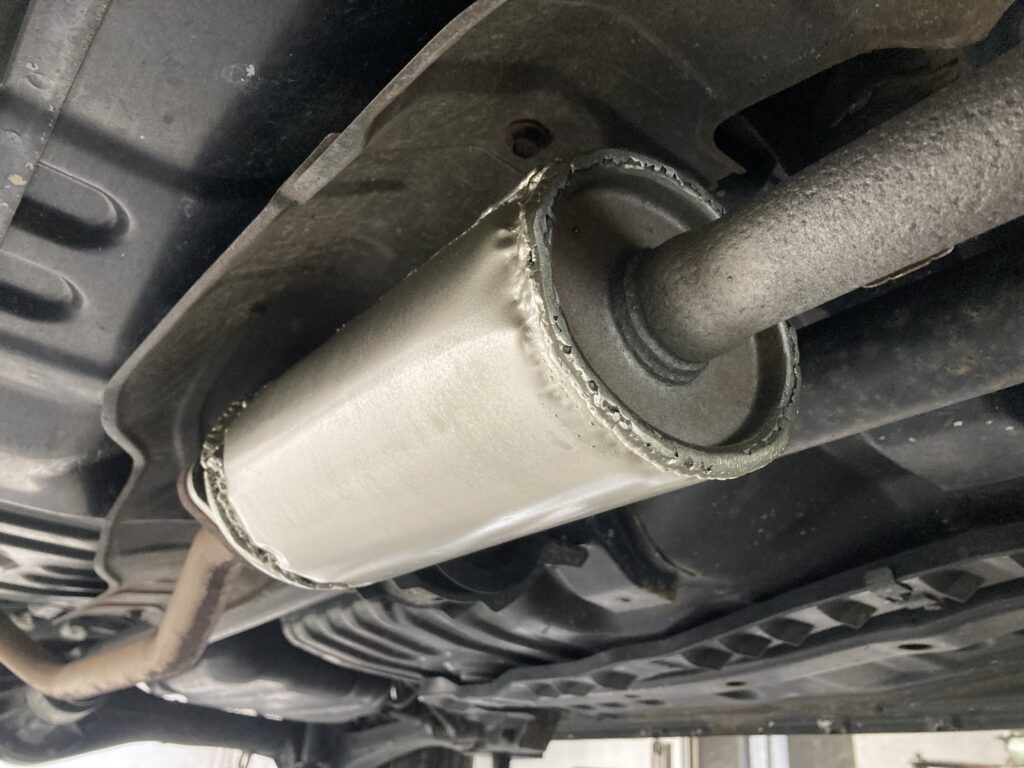The other day, I introduced a method of removing rusted nuts that ordinary tools can’t handle by heating them with a torch. Did you know that there was a large hole in that muffler?
For vehicles over 20 years old, there’s a limit to predicting their condition before taking them in for service. Even if everything was fine during the previous inspection, internal corrosion can progress and suddenly surface like this.
Naturally, this would fail the inspection (wouldn’t pass the vehicle inspection) in this state, so the plan to take the vehicle in the morning and head to the inspection center in the afternoon becomes questionable.
In the busy March period, the number of vehicles we take in for inspection is far higher than the monthly average, inspection centers are extremely crowded (generally consuming half a day), and it’s also the season to remove winter tires, so there’s absolutely no room in the schedule. Every minute and second is more precious than usual.
We can’t leisurely wait for parts to be ordered, so we apply an emergency repair here. Essentially, as long as we can eliminate exhaust leaks, we can pass the inspection for now.
We wrap available materials (an engine oil can) around it and weld it all the way around.
When welding thin metal sheets, tight contact is crucial. If you misjudge the pressure or adjustment with a well-worn semi-automatic welding machine (MAG), the hole can actually expand, making the situation unmanageable.
Every vehicle has a manufacturer’s service manual with important specifications and procedures, but in most cases, these are only useful as references.
Vehicles are originally made from materials that exist in nature, processed and assembled by humans for convenience, so the more they age, the more they change according to the laws of physics. Though artificial, working with them feels closer to facing nature. The content written in manuals, especially typical troubleshooting guides, is limited to the narrow imagination of designers and often feels unnatural compared to reality, appearing as mere platitudes.
There are no set procedures for removing corroded nuts as introduced previously or for emergency welding repairs. Mastery requires patience to repeat monotonous actions and flexibility to understand the causes of failure from multiple perspectives and angles.
When I happen to demonstrate these skills that can’t be acquired overnight in front of customers, I’m sometimes asked if I’m going to pass them on to the next generation. But this isn’t a traditional craft, and I myself wasn’t taught step by step by anyone. I think it’s fine for young people in the industry to enjoy tackling these challenges with their own approaches.




Leave a Reply